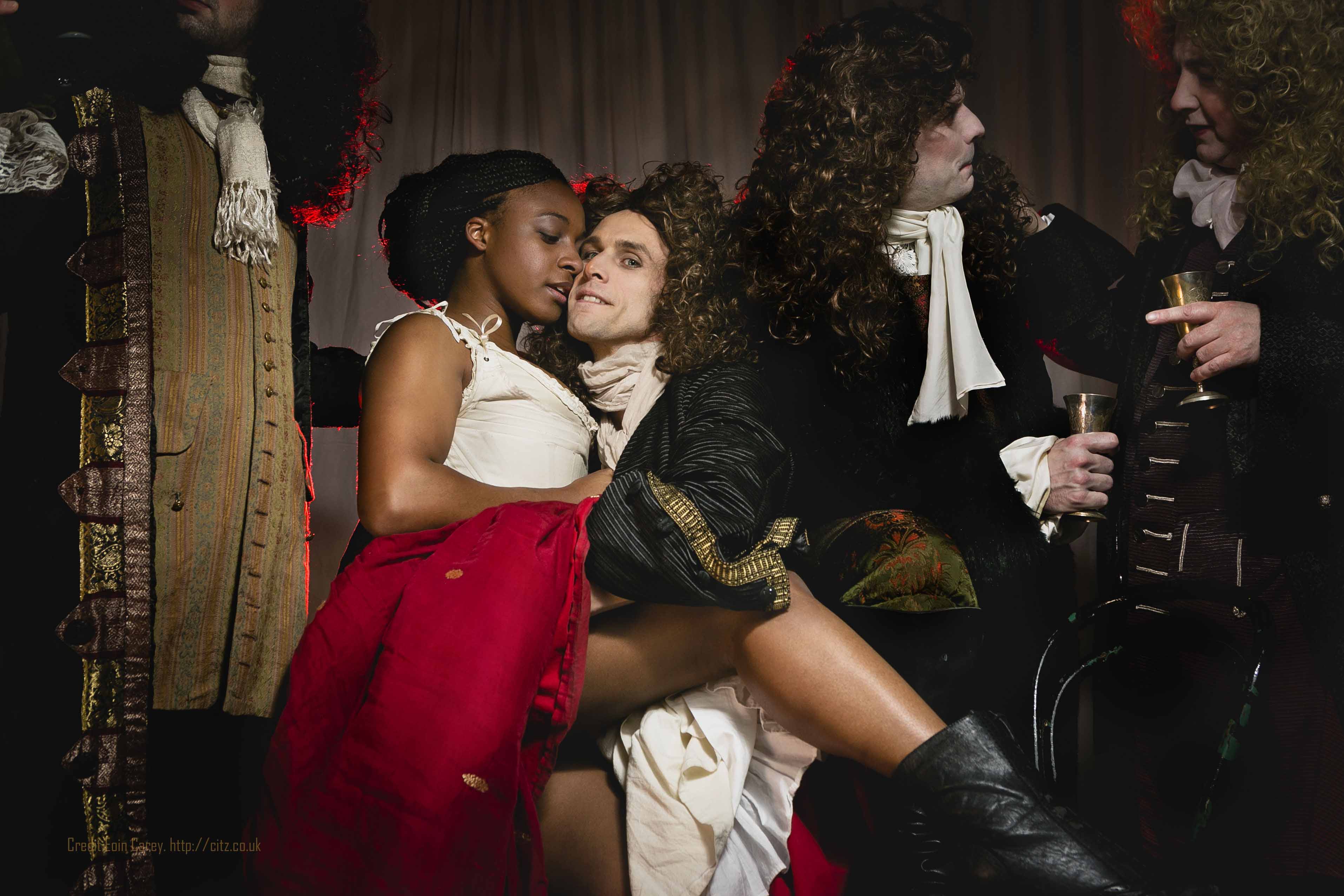The Cartesian enterprise was, in short, to cast out any supposed knowledge to which any doubt could be attached until some firm ground, something indubitable on which to base all other knowledge, could be found. Stephen Jeffries’ anti-hero, the seventeenth century Restoration rake, John Wilmot, Earl of Rochester (and near contemporary of Descartes) indulges in something similar, a process of casting aside all his blessings, his talent as a writer, connections at court and marriage to a wealthy beauty, Elizabeth Malet, in order to find some solid ground on which to build his happiness. At the end of play Rochester claims that he has had to wade his way through layers of licentiousness in order to find some level ground. He was and is depicted in the play as a kind of rake’s rake, a blade amongst blades, a wit amongst wits and a satirist willing to push against the boundaries of polite society.
In this Glasgow Citizens Theatre production, directed by Dominic Hill, the stage is stripped of all luxury. Tom Piper’s sparse set, in true Brechtian style, allows us (forces perhaps) to concentrate on the ideas. Martin Hutson’s laddish voluptuary, Rochester, gives fair warning that his character is not a sympathetic one and quickly and busily embarks on his course of self-destruction. It is a tight characterisation, which keeps in check the self-commentary and self-justification whilst avoiding maudlin self-pity faced with his imminent destruction.
The milieu in which Rochester exercises his talents and feeds his appetites is well drawn by the strong cast. His acolytes, Etheridge, Sackville and wannabe spark, Billy Downes (Tony Cownie, Andy Clark and Charlie Archer) all provide pin sharp portraits of the kind of dissolute characters that were found reveling in the fresh air which followed the repressive Puritanism of Cromwell’s Commonwealth. Standing at the head of society is Charles II who is given full regal authority in John Hodginson’s king whose Fawltyesque outbursts round out this most dissolute of monarchs. Lee Mengo’s astute servingman, Tom Alcock, provides a common-man perspective on their activities.
The women in the play are all capable of holding their own in what is otherwise a male dominated world. Prostitute, Jane, provides more than the conventional ‘tart with a heart’ and Elexi Walker gives her character the convincing feel of a strong no-nonsense businesswoman for whom Rochester is little more than a well paying and entertaining client. Rochester’s long suffering wife, Elizabeth Malet, is given some backbone by Lucianne McEvoy, whilst his protégé and lover – indeed love of his life and mother to his child – Elizabeth Barry, is given, by Gillian Saker, all the strength required to resist the will of Rochester once she is established as the great actress of the age.
In one sense this is a romp, but more importantly this is a thoughtful play, given by the Dominic Hill, an appropriately forensic production that entertains as it examines this unique figure and his idiosyncratic philosophy. ★★★★☆ Graham Wyles


